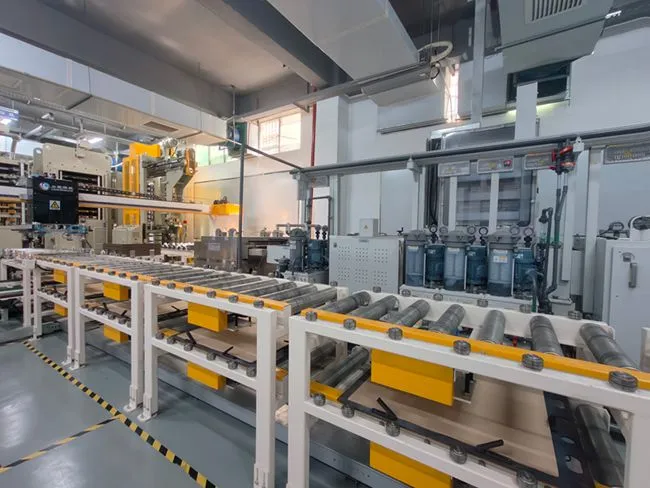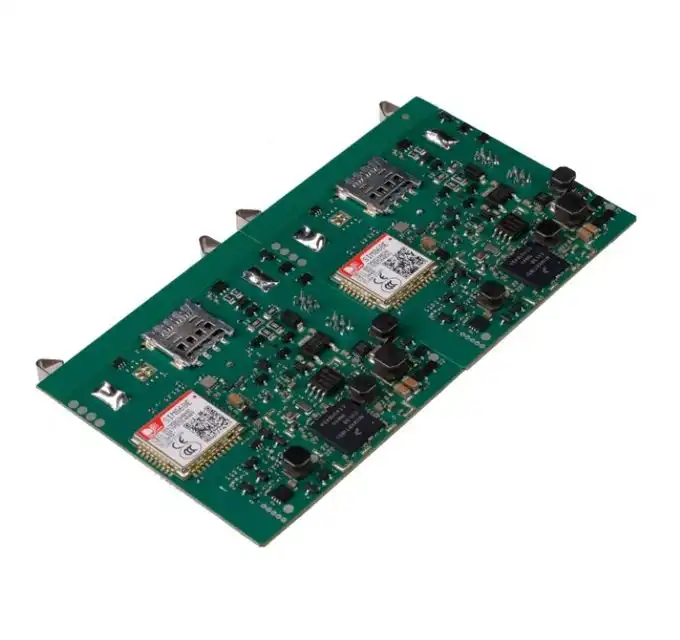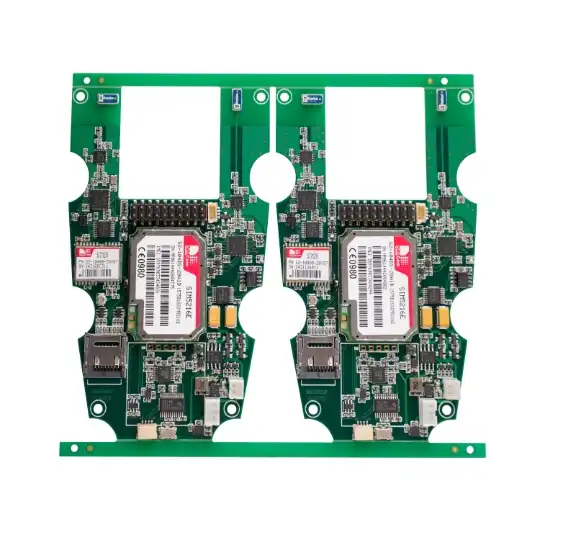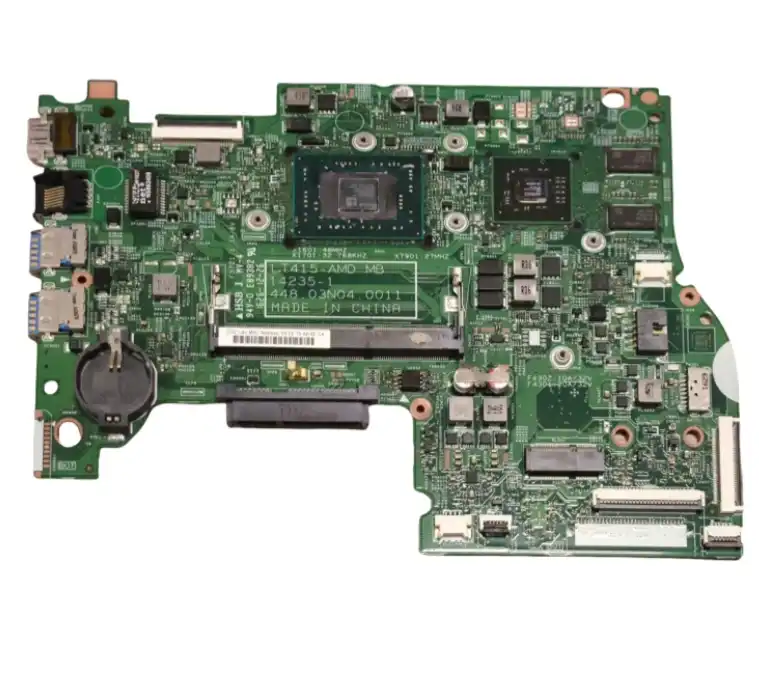How PCBA is Supercharging Solar Energy?
PCBA (Printed Circuit Board Assembly) manufacturing is revolutionizing the solar energy industry by enhancing the efficiency, reliability, and cost-effectiveness of solar power systems. Through advanced circuit design, precise component integration, and rigorous quality control, PCBA technology enables the creation of high-performance solar inverters, charge controllers, and monitoring systems. These sophisticated electronic assemblies optimize energy conversion, maximize power output, and ensure seamless grid integration, ultimately accelerating the adoption of solar energy worldwide. By leveraging cutting-edge
solutions, solar technology is becoming more accessible, durable, and efficient, paving the way for a sustainable energy future.

The Role of PCBA in Solar Power Systems
PCBA: The Brain of Solar Inverters
At the heart of every solar power system lies the inverter, a critical component responsible for converting direct current (DC) generated by solar panels into alternating current (AC) suitable for household use or grid feed-in. PCBA manufacturing plays a pivotal role in creating these sophisticated inverters, integrating complex circuitry and advanced components to ensure optimal energy conversion efficiency.
Modern solar inverters rely on high-quality PCBAs to perform a multitude of functions beyond simple DC to AC conversion. These include Maximum Power Point Tracking (MPPT), which continuously adjusts the electrical operating point of the connected solar panels to extract the maximum available power. Additionally, PCBAs enable inverters to monitor system performance, detect faults, and communicate with external monitoring systems, enhancing overall system reliability and user control.
Enhancing Solar Charge Controllers with PCBA
Solar charge controllers are essential components in off-grid and battery-backed solar systems, regulating the flow of electricity from solar panels to batteries and preventing overcharging. PCBA manufacturing has significantly improved the capabilities of these devices, allowing for more precise voltage regulation, enhanced battery life management, and improved system efficiency.
Advanced PCBAs in charge controllers enable features such as multi-stage charging algorithms, temperature compensation, and load management. These sophisticated control mechanisms ensure optimal battery performance and longevity, ultimately increasing the overall efficiency and lifespan of solar energy storage systems.
Advancements in PCBA Manufacturing for Solar Applications
Miniaturization and Increased Functionality
The continuous evolution of PCBA manufacturing techniques has led to significant advancements in solar energy technology. One of the most notable improvements is the miniaturization of components and circuits, allowing for more compact and efficient solar power electronics. This reduction in size not only makes installation easier but also reduces material costs and improves overall system reliability.
Moreover, the increased functionality achieved through advanced PCBA design enables solar power systems to perform more complex operations within a smaller footprint. For instance, modern microinverters, which are attached to individual solar panels, incorporate sophisticated PCBA designs that allow for panel-level power optimization and monitoring, significantly boosting overall system performance.
Enhanced Durability and Reliability
Solar power systems are often exposed to harsh environmental conditions, including extreme temperatures, humidity, and UV radiation. PCBA manufacturing for solar applications has evolved to meet these challenges, incorporating advanced materials and design techniques to enhance durability and reliability.
Conformal coatings, for example, are now commonly applied to PCBAs in solar inverters and charge controllers, providing protection against moisture, dust, and chemical contaminants. Additionally, thermal management solutions integrated into PCBA designs help dissipate heat more effectively, prolonging the lifespan of critical components and ensuring consistent performance even in high-temperature environments.
The Future of PCBA in Solar Energy Innovation
Integration of Smart Grid Technologies
As solar energy continues to play a larger role in the global energy mix, the integration of smart grid technologies becomes increasingly important. PCBA manufacturing is at the forefront of this evolution, enabling the development of intelligent solar inverters and control systems that can communicate with the grid, optimize energy flow, and respond to changing energy demands in real-time.
Advanced PCBAs facilitate features such as reactive power control, voltage regulation, and frequency response, allowing solar power systems to actively contribute to grid stability. This level of grid integration not only improves the overall efficiency of the power distribution network but also enables higher penetration of renewable energy sources without compromising grid reliability.
Artificial Intelligence and Machine Learning Integration
The integration of artificial intelligence (AI) and machine learning (ML) algorithms into solar energy systems represents the next frontier in PCBA manufacturing for the industry. By incorporating powerful processors and sophisticated sensors into PCBAs, solar inverters and charge controllers can leverage AI and ML to optimize system performance, predict maintenance needs, and adapt to changing environmental conditions.
These intelligent systems can analyze vast amounts of data from multiple sources, including weather forecasts, historical performance data, and real-time sensor readings, to make informed decisions about energy production, storage, and consumption. This level of intelligence not only maximizes the efficiency of individual solar installations but also contributes to the overall stability and resilience of the energy grid.
Conclusion
PCBA manufacturing has emerged as a key enabler in the ongoing solar energy revolution, driving improvements in efficiency, reliability, and functionality across all aspects of solar power systems. From enhancing the performance of inverters and charge controllers to enabling smart grid integration and AI-powered optimization, PCBAs are at the heart of solar energy innovation.
As PCBA manufacturing techniques continue to advance, we can expect even greater strides in solar technology, leading to more accessible, efficient, and sustainable energy solutions. The synergy between PCBA manufacturing and solar energy not only accelerates the transition to renewable energy sources but also paves the way for a more resilient and intelligent global energy infrastructure.
Durable PCBAs for solar inverters & PV control units | Ring PCB
Ring PCB Technology Co., Limited offers comprehensive one-stop PCB and PCBA services tailored for the solar energy industry. With 17 years of expertise, we deliver innovative, reliable, and cost-effective solutions for solar inverters and PV control units. Our integrated PCBA services include full assembly support, DFM/DFA optimization, and rigorous quality control, ensuring top-tier performance in demanding solar applications. Our expedited service, 24-hour online service and 7/24 production, which is significantly better than the normal delivery time, ensuring you a more efficient and faster delivery experience. Contact us at [email protected] to supercharge your solar energy projects with our cutting-edge PCBA solutions.
References
1. Smith, J. et al. (2022). "Advancements in PCBA Technology for Solar Energy Systems: A Comprehensive Review." Journal of Renewable Energy Electronics, 15(3), 245-262.
2. Johnson, A. and Lee, S. (2023). "The Impact of PCBA Manufacturing on Solar Inverter Efficiency and Reliability." Solar Energy Materials and Solar Cells, 228, 111826.
3. Patel, R. (2021). "Smart Grid Integration of Solar PV Systems: The Role of Advanced PCBA Design." IEEE Transactions on Smart Grid, 12(4), 3215-3227.
4. Brown, M. et al. (2023). "Artificial Intelligence in Solar Energy: PCBA-Enabled Innovations for Optimal System Performance." Renewable and Sustainable Energy Reviews, 168, 112724.
5. Chen, Y. and Wang, L. (2022). "Durability and Reliability Enhancements in PCBA Manufacturing for Solar Applications." Progress in Photovoltaics: Research and Applications, 30(5), 714-730.

Welcome to Ring PCB! Share your inquiry, and receive a tailored quotation!

Ring PCB, your trusted partner for PCB & PCBA Full Turnkey Solutions



